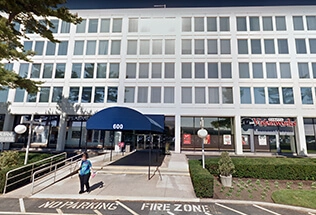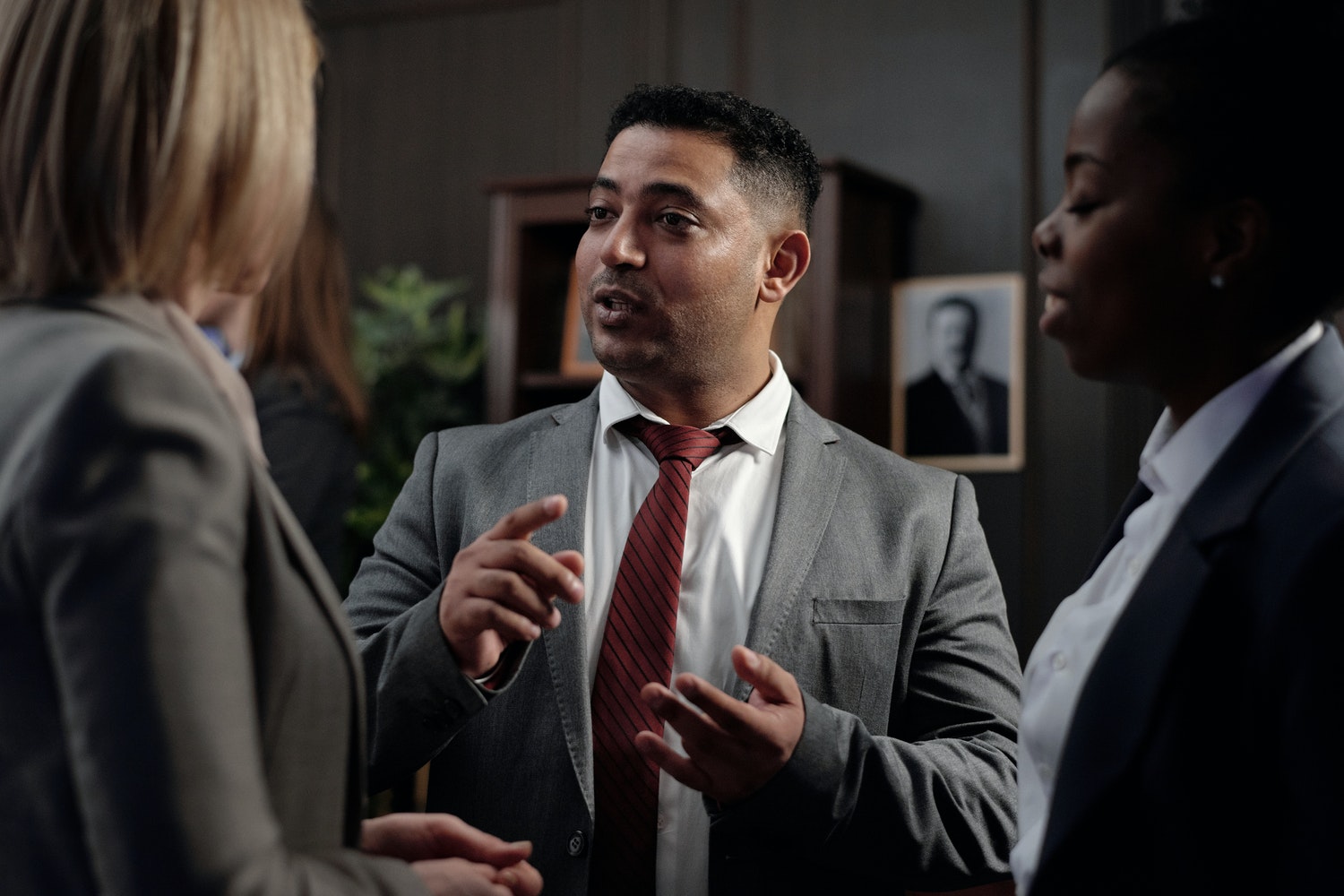When you hire a lawyer, you can tell them anything related to your case and trust that they will keep that information confidential throughout the legal process. Why is that? It’s all because of a legal concept called attorney-client privilege.”
Attorney-client privilege is vital for the security and legitimacy of the U.S. legal system. It’s also important so that lawyers can provide clear advice to their clients without having to determine whether those clients are guilty of accused crimes.
When you retain the legal services of Schwartzapfel Lawyers, you can rest assured that any information you give us will remain protected through attorney-client privilege, even during your free case evaluation.
For more on attorney-client privilege, or to take advantage of your free consultation, contact us today at 1-516-342-2200.
The Attorney-Client Privilege Explained
In short, attorney-client privilege is a special legal privilege that only applies between attorneys and their clients (or prospective clients). It ensures that attorney-client communications remain confidential, so long as those communications pertain to current or future legal proceedings, with some exceptions.
For example, if a person seeks a legal representative to defend them in court after an auto accident, anything they tell that legal representative relating to the accident is covered by attorney-client privilege and is confidential information. This includes:
- What information the client has on the accident, who caused it, and potential information on negligence
- Whether the client believes or knows they are guilty of causing the accident
Attorney-client privilege is always asserted when another person or legal party requests communications or information. Attorney-client privilege is absolute and applies even if a client has knowingly committed an illegal act and is now being sued because of it.
Imagine a scenario where an automobile driver was operating a vehicle under the influence of alcohol and got in an accident with another drive. The first driver knows they were impaired at the time of the accident. However, they hire a lawyer to defend them to avoid losing their license.
Under attorney-client privilege, the client can tell their attorney that they were driving under the influence of alcohol and the attorney is not obligated to share this information in court. It is instead the job of the prosecution to discover” this truth through the available evidence.
What Kind of Information Is Protected by Attorney-Client Privilege?
In New York State and throughout the U.S., common law recognizes attorney-client privilege if the information includes or refers to what has been termed the 5 Cs.”
- Communications. In other words, your information is not protected by attorney-client privilege. You must be attempting to communicate with your attorney or vice versa for the information contained in that communication to be protected as privileged information. For example, a document with important legal information is not covered by attorney-client privilege unless it is a written document sent to or from the attorney to their client.
- Confidentiality. The privileged communication in question has to be confidential. If, for example, you speak to your lawyer in public about a sensitive legal topic and a third party overhears you, the information contained in that conversation is no longer protected by attorney-client privilege.
- Client-based communication. All communications must be made by the client, who, in this sense, can be an individual, group, or corporation.
- Communication made to counsel, such as a lawyer or law firm. Note that attorney-client privilege extends to all client communications with individuals who assist their primary legal representatives, such as investigators, paralegals, and general counsels, whether in-house or outside.
- Lastly, all confidential communications must be made for the purpose of seeking or providing legal counsel/legal advice. For instance, a client asking their attorney what they had for breakfast is not covered by attorney-client privilege because the purpose of the question is unrelated to seeking out or providing legal counsel.
For more on the nature of attorney-client privilege, speak directly with one of our award-winning trial lawyers by calling Schwartzapfel Lawyers at 1-516-342-2200.
When Does Attorney-Client Privilege Exist?
Attorney-client privilege exists whenever there is a legal demand for information or communications regarding a case or case actions. It also exists for both the current clients of legal representatives and potential clients they may have in the future.
Current Clients
Simply put, as soon as you hire an attorney, all of your communications with them are subject to attorney-client privilege (provided they are case-related). This includes:
- Oral communications, such as legal matter conversations you have with your attorney
- Written communications, including those written on paper or written over email
- Nonverbal communication, such as nodding or shaking one’s head
- Any other reasonable forms of communication that may be inferred or used to transmit information from you to your attorney or vice versa
Typically, you become a client of a legal representative when you sign a contract with them. However, you may also be considered a client of a legal representative when you pay them money in certain states.
Potential Clients
In addition to current clients, potential legal clients may also be protected by attorney-client privilege. When establishing or enforcing privilege in these circumstances, however, certain legal gray areas do exist.
Generally, it has to be reasonable” that you intended to seek out legal representation from a lawyer or law firm at the time of giving them information for that information to be protected.
Say that you take advantage of a free case evaluation offered by a firm like Schwartzapfel Lawyers. Since a case evaluation is meant to help clients pick attorneys, any information you divulge to a firm during that case evaluation may reasonably be protected by attorney-client privilege. Contact us today for more information at 1-516-342-2200.
When Does Attorney-Client Dissolve?
Attorney-client privilege dissolves after the attorney-client relationship is concluded. For example, if you win a personal injury lawsuit and your lawyer moves on to other clients, your communications with them are no longer protected by attorney-client privilege.
Attorney-client privilege can also dissolve under specific circumstances like:
- The death of a client. In these cases, attorneys may be compelled to reveal information to the court or justice system if the situation involves heirs, distribution of property, etc. However, there is precedent from the U.S. Supreme Court that this is not always the case.
- Fiduciary duty is involved. For instance, clients cannot solicit the assistance of an attorney to continue committing a crime or commit a further crime. Any information they give the attorney for these acts is not protected by attorney-client privilege.
- Post-act concealment of crime or fraud. If a client tries to conceal criminal activity or fraud, the attorney is not obligated to keep information about that activity confidential.
When Is Attorney-Client Privilege Waived?
Significantly, attorney-client privilege may be waived by the client at any time. This is true of corporate clients and organizations as well.
Moreover, a waiver of attorney-client privilege can be assumed if it is reasonable that communication should not be confidential.
As in the above example, if a client makes an inadvertent disclosure about a sensitive issue in a public setting such as a restaurant, it cannot be reasonably assumed that they intended the disclosure to be confidential. Attorney-client privilege is waived in this circumstance as a result. Notably, the same waiver policy can be applied to privileged documents.
Why Is Attorney-Client Privilege Important?
The attorney-client privilege is important primarily so that legal representatives can offer frank, accurate advice on relevant subject matter to their clients. This is crucial to the entire American justice system, which was created with the belief that all individuals have the right to zealous legal representation.
For instance, if an alleged criminal is imprisoned for an act they are accused of having committed, they may be assigned a defense lawyer to assist with their case. But if that alleged criminal is unable to admit to the crime, their legal representative cannot erect as good a defense as possible on their behalf.
In other words, attorney-client privilege is important for the justice system so that lawyers and their clients can speak freely to each other, and so that legal proceedings can advance as efficiently as possible. It also helps individuals seek out legal representation when they are partially at fault for an accident or incident, as they can then admit to a certain amount of fault to their representatives while still fighting hard for what they deserve in court.
Attorneys, meanwhile, are not obligated to report known criminal activity or guilt to opposing counsel (i.e., the prosecution) or the court, since that information is shielded by attorney-client privilege.
Contact Schwartzapfel Lawyers
Ultimately, attorney-client privilege is a key part of the American legal system, and it’s something we take very seriously at Schwartzapfel Lawyers. As experienced New York attorneys with practice areas ranging from personal injury to medical malpractice to workers’ compensation and more, we know how crucial it is to keep our clients’ information confidential throughout the legal process.
That’s why you can trust us no matter what type of legal representation you need. With Schwartzapfel Lawyers, the attorney-client privilege starts as soon as you give us a call at 1-516-342-2200 or contact us online.
So, please, act now and don’t wait! Get the legal assistance you deserve for your upcoming lawsuit by having Schwartzapfel Lawyers fight for you. Day or night, rain or shine, we will be on your side. Speak with a member of our team directly by dialing 1-516-342-2200 now!
Sources:
Schwartzapfel Lawyers, P.C. | Fighting For You™™
Attorney-Client Privilege | Wex | US Law
Attorney-Client Privilege: What You Need to Know | SHRM.org


















